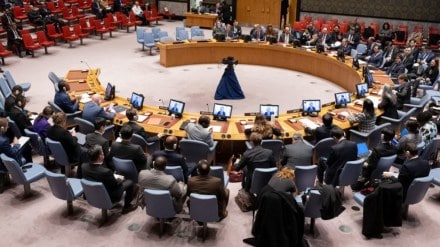As the war in Ukraine drags on, global leaders are increasingly calling for a peaceful resolution, with India among the nations advocating for diplomacy and dialogue. At the United Nations Security Council meeting on Tuesday (Sept 24, 2024), Secretary-General António Guterres reiterated the importance of intensified efforts to bring about peace in Ukraine. His remarks came just days after the announcement of the Pact for the Future, in which world leaders reaffirmed their commitment to international law and the United Nations Charter, emphasizing the sovereignty of all Member States and the peaceful resolution of conflicts.
Guterres expressed deep concern over Russia’s continued military actions in Ukraine, which began in February 2022, following the illegal annexation of Crimea in 2014. He condemned the widespread devastation, particularly the attacks on civilian infrastructure such as hospitals, schools, and supermarkets. Millions of Ukrainians remain displaced, and the humanitarian crisis is worsening as winter approaches. The United Nations, which has already provided life-saving aid to over 6 million people, continues to call for more international support to meet the urgent needs of approximately 15 million Ukrainians, including women and children.
While acknowledging the grim reality of the ongoing war, Guterres emphasised that diplomacy can still prevail. “When there is political will, diplomacy can succeed—even in the darkest hour,” he said. He pointed to the Black Sea Initiative, which facilitated the safe export of Ukrainian grain, and the exchange of prisoners of war as examples of diplomatic success amid conflict.
Not an Era of War: India’s Position
India has been a prominent voice in advocating for a peaceful solution to the Ukraine conflict. Since the war’s outbreak, India has maintained a neutral stance, refraining from joining Western sanctions on Russia but consistently urging dialogue. During previous discussions at the UN and on other international platforms, Indian officials have emphasised the need for a negotiated solution. Prime Minister, Narendra Modi, reiterated this stance at the G20 summit, underscoring that “this is not an era of war” and urging all parties to engage in dialogue and diplomacy to resolve the conflict. India’s balanced position reflects its broader foreign policy approach of fostering peace while protecting its strategic interests.
The United Nations has also raised alarms over the nuclear risks in the region. Guterres expressed concern over incidents at nuclear sites such as Ukraine’s Zaporizhzhia Nuclear Power Plant and Russia’s Kursk Nuclear Power Plant, where the situation remains volatile. He urged all parties to refrain from actions that could further destabilise the situation and welcomed the efforts of the International Atomic Energy Agency (IAEA) in monitoring and ensuring the safety of nuclear facilities.
Despite the bleak outlook, Guterres found hope in the growing international calls for peace. “Today, though the prospects for peace may seem distant, I am inspired by the growing calls for dialogue,” he said, urging the global community to support a just and comprehensive peace, in accordance with the UN Charter and international law.
The conflict in Ukraine continues to pose a grave risk not only to the region but to global stability. The international community, including India, remains united in calling for a peaceful, diplomatic resolution to prevent further escalation and to alleviate the suffering of the Ukrainian people.
